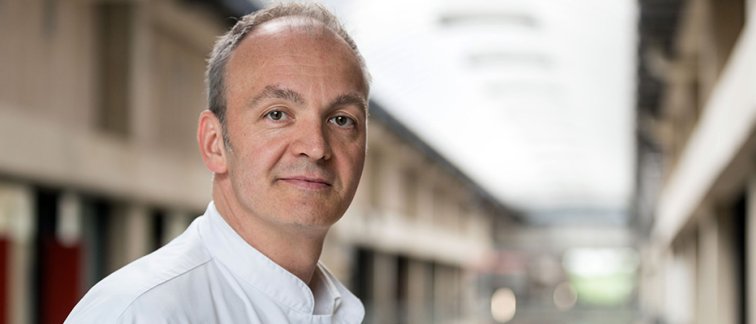Professor of Movement Disorders Rob de Bie of Amsterdam Neuroscience works at Amsterdam UMC where he meets people with Parkinson’s on a daily basis. De Bie is one of the main neurologists focusing on Parkinson’s disease. “I’m driven by my daily experiences with people suffering from this disease”, says de Bie.
Meeting people with Parkinson’s disease
“In the clinic I meet people with Parkinson’s in all stages of the disease, varying from early to advanced stages, who may experience a wide range of symptoms and difficulties. Our team discusses possible treatments, such as advice, paramedic treatments, medications, and even surgery”, de Bie explains as he talks about his work with Parkinson’s disease patients.
Research that may help to prevent or find a cure
Additionally, professor de Bie is involved in the training of young doctors and participates in, and supervises, a research team that focuses on improving the treatment of Parkinson’s disease. This includes addressing current ‘clinical burning questions’, but also investigating disease mechanisms that may help to prevent or find a cure for Parkinson’s disease.
Personal motivation
“I’m driven by my daily experiences with people suffering from the disease. I encounter clinical burning questions regularly. For example, should we advise a particular patient to opt for treatment with deep brain stimulation, or would continuous levodopa intestinal gel via a portable pump be a better choice? We, as clinicians, are aware of these challenges and are in a position to solve them. It is still a long way to go, but it would be ultimate to be able to prevent or cure the disease”, the professor continues.
World Parkinson’s Day
For professor de Bie, every day of the year is Parkinson’s Day. But he does endorse national and global initiatives to raise awareness: “Creating awareness for Parkinson’s disease will help in many different ways. It supports people who suffer from the disease now; it will encourage working in healthcare and stimulate research aiming to improve current treatment. Raised interest for the disease will also increase financial support for research”, de Bie states.

